18 july 2018
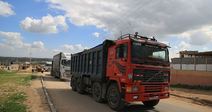
Head of the Popular Committee against the siege MP Jamal al-Khudari, said that Israel has been detaining and banning over 2000 trucks carrying goods from entering the Gaza Strip through Karm Abu Salem crossing after it had been closed completely.
In a press statement on Wednesday, Khudari pointed out that these trucks are carrying basic needs and raw materials for the continuation of industrial and commercial projects. He cautioned that these measures will increase poverty and unemployment rates and lead to a more deteriorated economy in Gaza.
He elaborated that these products were purchased and imported officially and legally with all required transfer approvals, including sea ports and commercial crossings.
However, Israeli occupation authorities returned the goods after reaching Karm Abu Salem crossing, which has led to great losses because of long-term storage, Khudari concluded.
In a press statement on Wednesday, Khudari pointed out that these trucks are carrying basic needs and raw materials for the continuation of industrial and commercial projects. He cautioned that these measures will increase poverty and unemployment rates and lead to a more deteriorated economy in Gaza.
He elaborated that these products were purchased and imported officially and legally with all required transfer approvals, including sea ports and commercial crossings.
However, Israeli occupation authorities returned the goods after reaching Karm Abu Salem crossing, which has led to great losses because of long-term storage, Khudari concluded.

Israeli occupation forces (IOF) on Wednesday uprooted 350 fruitful trees in Salfit’s village of Deir Ballout, in the northern West Bank.
Local sources said that Israeli bulldozers have uprooted about 350 olive, fig, and almond trees for the past 72 hours in Bab al-Marj area in Deir Ballout town, belonging to Idris Abdullah.
IOF soldiers also handed over a demolition order stipulating the destruction of a structure in the area for settlement expansion.
Local sources said that Israeli bulldozers have uprooted about 350 olive, fig, and almond trees for the past 72 hours in Bab al-Marj area in Deir Ballout town, belonging to Idris Abdullah.
IOF soldiers also handed over a demolition order stipulating the destruction of a structure in the area for settlement expansion.
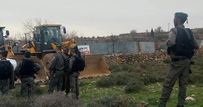
Israeli bulldozers on Wednesday leveled Palestinian lands east of Deir Balout town, to the west of Salfit, in favor of illegal settlement expansion.
Over recent days, over 100 olive trees got chopped down and cultivated lands bulldozed as part of Israel’s illegal settlement activities across Salfit.
Palestinian farmer Abdullah Idris said Israeli bulldozes uprooted his olive trees and destroyed his crops planted on his private land.
Idris warned of underway attempts by the Israeli occupation authorities to grab hold of fertile lands in the area.
Researcher Khaled Maali has warned of the swift pace of Israel’s settlement activity in the area, which he said contravenes international laws and treaties.
Over recent days, over 100 olive trees got chopped down and cultivated lands bulldozed as part of Israel’s illegal settlement activities across Salfit.
Palestinian farmer Abdullah Idris said Israeli bulldozes uprooted his olive trees and destroyed his crops planted on his private land.
Idris warned of underway attempts by the Israeli occupation authorities to grab hold of fertile lands in the area.
Researcher Khaled Maali has warned of the swift pace of Israel’s settlement activity in the area, which he said contravenes international laws and treaties.
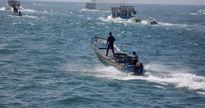
Israeli gunboats on Wednesday morning attacked Palestinian fishermen and their boats off the coast of the besieged Gaza Strip.
According to local sources, gunboats opened machinegun fire at and chased fishing boats off the shores of as-Sudaniya and al-Waha areas, northwest of Gaza.
The Israeli navy attacked the fishermen as they were working within the permitted fishing zone, which Israel had reduced recently from six to three nautical miles.
Other fishing boats were also exposed to a similar attack by the Israeli navy off the shore of central Gaza.
Israeli gunboats are around Gaza fishermen almost every day, harassing them, shooting at them, damaging their boats, and making arrests. Sometimes fishermen are injured or killed during gunfire attacks.
Under the 1993 Oslo accords, Palestinian fishermen are permitted to fish up to 20 nautical miles off the coast of Gaza, but since then Israel has kept reducing the fishing area gradually to a limit of three nautical miles as part of its blockade on Gaza.
Fishermen and human rights groups also say that, since the 2008-09 war in Gaza, the Israeli army has been regularly enforcing a limit even closer to the shore.
According to local sources, gunboats opened machinegun fire at and chased fishing boats off the shores of as-Sudaniya and al-Waha areas, northwest of Gaza.
The Israeli navy attacked the fishermen as they were working within the permitted fishing zone, which Israel had reduced recently from six to three nautical miles.
Other fishing boats were also exposed to a similar attack by the Israeli navy off the shore of central Gaza.
Israeli gunboats are around Gaza fishermen almost every day, harassing them, shooting at them, damaging their boats, and making arrests. Sometimes fishermen are injured or killed during gunfire attacks.
Under the 1993 Oslo accords, Palestinian fishermen are permitted to fish up to 20 nautical miles off the coast of Gaza, but since then Israel has kept reducing the fishing area gradually to a limit of three nautical miles as part of its blockade on Gaza.
Fishermen and human rights groups also say that, since the 2008-09 war in Gaza, the Israeli army has been regularly enforcing a limit even closer to the shore.
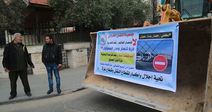
The Popular Committee Against the Siege has warned of an Israeli plan to take further steps to strangle the Gaza Strip economically.
In press remarks on Tuesday, head of the committee Jamal al-Khudari said that Israel’s new strangulation plan is aimed at causing the worsening economic situation in Gaza to collapse completely.
Khudari described the economic situation in Gaza as “already in the recovery room,” affirming that Gaza has been suffering from considerable economic pressures and tight blockade for over 11 years.
He pointed out that more than 80 percent of Gaza factories, workshops and businesses had been shut down either partially or completely, rendering tens of thousands of citizens with no jobs.
In press remarks on Tuesday, head of the committee Jamal al-Khudari said that Israel’s new strangulation plan is aimed at causing the worsening economic situation in Gaza to collapse completely.
Khudari described the economic situation in Gaza as “already in the recovery room,” affirming that Gaza has been suffering from considerable economic pressures and tight blockade for over 11 years.
He pointed out that more than 80 percent of Gaza factories, workshops and businesses had been shut down either partially or completely, rendering tens of thousands of citizens with no jobs.
17 july 2018
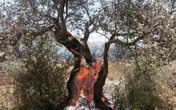
Jewish settlers attacked, on Tuesday, Palestinian homes in the northern West Bank village of Assira al-Qibliya, and set farmland on fire, according to Ghassan Daghlas, who monitors settlers’ activities in the north of the West Bank.
Daghlas told WAFA that settlers from the illegal Yitzhar settlement attacked the Palestinian homes and torched land planted with olive trees.
He said that residents rushed to defend their homes and land but the Israeli army intervened, to protect the settlers, and confronted the residents, shooting at them to keep them back.
Residents also physically confronted the soldiers, as well as the settlers, he said.
Daghlas told WAFA that settlers from the illegal Yitzhar settlement attacked the Palestinian homes and torched land planted with olive trees.
He said that residents rushed to defend their homes and land but the Israeli army intervened, to protect the settlers, and confronted the residents, shooting at them to keep them back.
Residents also physically confronted the soldiers, as well as the settlers, he said.
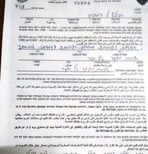
Israeli soldiers invaded, Tuesday, Palestinian agricultural lands in the al-Khader town, south o the West Bank city of Bethlehem, and posted orders for the illegal confiscation of 120 Dunams.
Ahmad Salah, the coordinator of the Popular Committee against the Annexation Wall and Colonies in al-Khader, said the Palestinians found the military orders placed on their lands.
Salah added that the orders also instructed the Palestinians that they have 45 days to file appeals against the military orders.
The orders addressed each land owner by name, requiring them to evacuate from their lands, otherwise the military will take over by force.
Salah also aid that the Palestinians were given the option to file appeals within 30 days, with the “Absentee Property Office,” explaining “the reasons for the appeals, accompanied by maps and deeds, to claim ownership rights.”
The Palestinian can also file appeals with the special court in Ofer military base, near Ramallah, in central West Bank.
It is worth mentioning that such orders are rarely overturned by any Israeli court, and the lands are used by for the construction and expansion of illegal colonies in the occupied West Bank, and for military considerations, in direct violation of International Law, the Fourth Geneva Conventions and various international resolutions and treaties.
Ahmad Salah, the coordinator of the Popular Committee against the Annexation Wall and Colonies in al-Khader, said the Palestinians found the military orders placed on their lands.
Salah added that the orders also instructed the Palestinians that they have 45 days to file appeals against the military orders.
The orders addressed each land owner by name, requiring them to evacuate from their lands, otherwise the military will take over by force.
Salah also aid that the Palestinians were given the option to file appeals within 30 days, with the “Absentee Property Office,” explaining “the reasons for the appeals, accompanied by maps and deeds, to claim ownership rights.”
The Palestinian can also file appeals with the special court in Ofer military base, near Ramallah, in central West Bank.
It is worth mentioning that such orders are rarely overturned by any Israeli court, and the lands are used by for the construction and expansion of illegal colonies in the occupied West Bank, and for military considerations, in direct violation of International Law, the Fourth Geneva Conventions and various international resolutions and treaties.
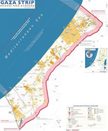
The Israeli Authorities have decided, on Monday evening, to close Karem Abu Salem (Kerem Shalom) crossing, and to reduce the fishing zone allotted for the Palestinians in Gaza, from six to only three nautical miles.
Engineer Raed Fattouh, the chairman of the coordination committee for the entry of goods into the Gaza Strip, said the Israeli side has officially informed the Palestinians that it is closing Karem Abu Salem Crossing, which is used for the entry of goods into the coastal region, until further notice.
Fattouh added that Israel cited “security considerations” for shutting the crossing down, and said that only limited types of food supply, and medicine, will be allowed through.
The decision came only one week after Israel decided to significantly decrease the amount of goods, food and medicine entering the Gaza Strip, as one of the measures meant to pressure the Palestinians into halting the Great Return March processions.
The decision includes decreasing the fishing zone to the fishermen in Gaza from six to three nautical miles, also until further notice, and for the same “reasons.”
There are more than 4000 fishers and around 700 boats in the Gaza Strip providing livelihood to dozens of at least 70.000 Palestinians, while the Israeli military and navy keep attacking them, kidnapping them and confiscating their boats, in addition to the dozens of casualties, including fatalities, resulting from these violations.
It is worth mentioning that, under the Oslo Peace Agreement, signed between Israel and the Palestine Liberation Organization in 1993, the fishing zone was set at twenty nautical miles, where the Palestinians are supposed to be able to fish and sail, but Israel kept violating the agreement.
Engineer Raed Fattouh, the chairman of the coordination committee for the entry of goods into the Gaza Strip, said the Israeli side has officially informed the Palestinians that it is closing Karem Abu Salem Crossing, which is used for the entry of goods into the coastal region, until further notice.
Fattouh added that Israel cited “security considerations” for shutting the crossing down, and said that only limited types of food supply, and medicine, will be allowed through.
The decision came only one week after Israel decided to significantly decrease the amount of goods, food and medicine entering the Gaza Strip, as one of the measures meant to pressure the Palestinians into halting the Great Return March processions.
The decision includes decreasing the fishing zone to the fishermen in Gaza from six to three nautical miles, also until further notice, and for the same “reasons.”
There are more than 4000 fishers and around 700 boats in the Gaza Strip providing livelihood to dozens of at least 70.000 Palestinians, while the Israeli military and navy keep attacking them, kidnapping them and confiscating their boats, in addition to the dozens of casualties, including fatalities, resulting from these violations.
It is worth mentioning that, under the Oslo Peace Agreement, signed between Israel and the Palestine Liberation Organization in 1993, the fishing zone was set at twenty nautical miles, where the Palestinians are supposed to be able to fish and sail, but Israel kept violating the agreement.
16 july 2018
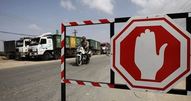
The Israeli occupation authorities on Monday announced the complete closure of Karam Abu Salem, the only commercial crossing connecting the Gaza Strip with the outside world, until further notice.
Palestinian official Raed Fattouh said in press statements that the Israeli authorities declared that only medicines will be allowed entry into the coastal enclave when needed.
Karam Abu Salem is the only commercial outlet for the Palestinian people in Gaza who have been living under difficult economic conditions in view of the ongoing blockade and tightened restrictions on the entry and exit of goods.
The move came a week after the Israeli government decided to ban the export of goods through the crossing and reduce the number of trucks carrying goods to Gaza in response to the fire kites and balloons launched from Gaza toward neighboring Israeli settlements.
Since the start of the Great March of Return in Gaza, Palestinian youths, in response to Israeli crimes, have launched dozens of fire kites and balloons toward Israeli settlements burning thousands of dunums of settler farmlands.
A spokesman for the Israeli army threatened to tighten sanctions on the Gaza Strip if Palestinian protesters continue to fly fire kites over the border fence, and held Hamas responsible for all that is happening in the enclave.
Palestinian official Raed Fattouh said in press statements that the Israeli authorities declared that only medicines will be allowed entry into the coastal enclave when needed.
Karam Abu Salem is the only commercial outlet for the Palestinian people in Gaza who have been living under difficult economic conditions in view of the ongoing blockade and tightened restrictions on the entry and exit of goods.
The move came a week after the Israeli government decided to ban the export of goods through the crossing and reduce the number of trucks carrying goods to Gaza in response to the fire kites and balloons launched from Gaza toward neighboring Israeli settlements.
Since the start of the Great March of Return in Gaza, Palestinian youths, in response to Israeli crimes, have launched dozens of fire kites and balloons toward Israeli settlements burning thousands of dunums of settler farmlands.
A spokesman for the Israeli army threatened to tighten sanctions on the Gaza Strip if Palestinian protesters continue to fly fire kites over the border fence, and held Hamas responsible for all that is happening in the enclave.
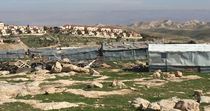
Israeli settlers,on Monday, destroyed crops in the southern West Bank town of al-Khader, south of Bethlehem, after they ran over them with their vehicle, according to the landowner.
Fadi Zayyah, a local farmer, said that the assailants drove their vehicle on his land planted with tomatoes and cucumbers, destroying the crops before fleeing the scene.
According to WAFA, Zayyah’s field is adjacent to the illegal Nevi Daniel settlement, which was established on lands seized from Wad Rahhal and al-Khader villages in 1982.
Settler violence against Palestinians and their property is routine in the West Bank and is rarely prosecuted by the Israeli authorities.
Settler violence includes property arson, stone-throwing, uprooting of crops and olive trees, attacks on vulnerable homes, among others.
Fadi Zayyah, a local farmer, said that the assailants drove their vehicle on his land planted with tomatoes and cucumbers, destroying the crops before fleeing the scene.
According to WAFA, Zayyah’s field is adjacent to the illegal Nevi Daniel settlement, which was established on lands seized from Wad Rahhal and al-Khader villages in 1982.
Settler violence against Palestinians and their property is routine in the West Bank and is rarely prosecuted by the Israeli authorities.
Settler violence includes property arson, stone-throwing, uprooting of crops and olive trees, attacks on vulnerable homes, among others.
15 july 2018
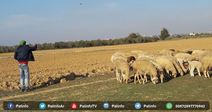
Israeli settlers on Sunday cracked down on Palestinian near the village of Khirbet Makahoul, in the northern Jordan Valley, and prevented them from grazing their livestock,
Local sources said armed settlers chased the shepherds and prevented them from grazing their livestock after they cordoned off their grazing fields.
Israeli soldiers were stationed in the area to protect the settlers.
Israeli forces often seize Palestinian livestock and transfer it to military camps. Shepherds are also subjected to steep fines.
Local sources said armed settlers chased the shepherds and prevented them from grazing their livestock after they cordoned off their grazing fields.
Israeli soldiers were stationed in the area to protect the settlers.
Israeli forces often seize Palestinian livestock and transfer it to military camps. Shepherds are also subjected to steep fines.
14 july 2018
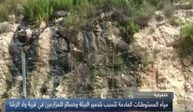
The flooding of waste and toxic water from the Industrial Zone of the illegal Alfie Menashe Israeli colony, which was built on Palestinian lands near Qalqilia, in northern West Bank, continues to devastate Palestinian agricultural lands, and the environment, in Wad ar-Rasha village, exposing the residents to serious health risks.
Representative of Wad ar-Rasha Village in Hableh Local Council, Amjad Odah, told Palestine TV the flooding of toxins, chemicals and wastewater into the Palestinian lands is seriously increasing, flooding the agricultural lands, and passing near homes, forcing many farmers away from their lands. video
“They first built their chemical plant and illegal colony, on our lands, and now are poisoning them and us,” Odah added, “They are exposing the Palestinians to serious health risks, in addition to harming the environment with these dangerous chemicals and toxins.”
The toxins also contaminated the agricultural soil, and the irrigation table in the area, inflicting serious damage to the environment in addition to exposing the Palestinians and wild life to diseases.
Bassem Odah, a local farmer, said the toxins are burning the roots of the Palestinian olive trees, and other plants they have.
“Besides all of this harm, we stopped letting our children play in our lands in that area, because we don’t want them to be sick, or get into the contaminate natural water pools in the valley,” he added.
Wad ar-Rasha is one of the most devastated villages by the illegal Israeli policies, allowing the illegal colonies to operate chemical plants that constantly flood their waste the Palestinian lands.
It also lost 460 Dunams of its 500 Dunams lands to the illegal construction and expansion of the colonies, while the residents are literally fighting for their own existence there.
Representative of Wad ar-Rasha Village in Hableh Local Council, Amjad Odah, told Palestine TV the flooding of toxins, chemicals and wastewater into the Palestinian lands is seriously increasing, flooding the agricultural lands, and passing near homes, forcing many farmers away from their lands. video
“They first built their chemical plant and illegal colony, on our lands, and now are poisoning them and us,” Odah added, “They are exposing the Palestinians to serious health risks, in addition to harming the environment with these dangerous chemicals and toxins.”
The toxins also contaminated the agricultural soil, and the irrigation table in the area, inflicting serious damage to the environment in addition to exposing the Palestinians and wild life to diseases.
Bassem Odah, a local farmer, said the toxins are burning the roots of the Palestinian olive trees, and other plants they have.
“Besides all of this harm, we stopped letting our children play in our lands in that area, because we don’t want them to be sick, or get into the contaminate natural water pools in the valley,” he added.
Wad ar-Rasha is one of the most devastated villages by the illegal Israeli policies, allowing the illegal colonies to operate chemical plants that constantly flood their waste the Palestinian lands.
It also lost 460 Dunams of its 500 Dunams lands to the illegal construction and expansion of the colonies, while the residents are literally fighting for their own existence there.
13 july 2018
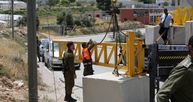
The Israeli occupation army has been closing an agricultural road northwest of Salfit in the central West Bank for several days and refuses to open it.
According to local farmers, the Israeli army blocked the only agricultural road in the northern area, which extends from the northern entrance of Salfit to Bir Haris area, with an iron gate and prevented all local residents from using the road.
The farmers appealed to human rights groups to intervene and pressure the Israeli authorities to reopen the road.
Researcher Khaled al-Maali, specialist in settlement affairs, said that this agricultural road serves dozens of farmers from Salfit and the towns of Haris and Kifl Haris.
Maali affirmed that Israel’s closure of the road aims to expel the farmers from their lands as part of a current plant to expand the settlement of Ariel, adding that the Israeli occupation authority already started to carry out bulldozing activities in the northern and western mountainous areas of Salfit.
According to local farmers, the Israeli army blocked the only agricultural road in the northern area, which extends from the northern entrance of Salfit to Bir Haris area, with an iron gate and prevented all local residents from using the road.
The farmers appealed to human rights groups to intervene and pressure the Israeli authorities to reopen the road.
Researcher Khaled al-Maali, specialist in settlement affairs, said that this agricultural road serves dozens of farmers from Salfit and the towns of Haris and Kifl Haris.
Maali affirmed that Israel’s closure of the road aims to expel the farmers from their lands as part of a current plant to expand the settlement of Ariel, adding that the Israeli occupation authority already started to carry out bulldozing activities in the northern and western mountainous areas of Salfit.
